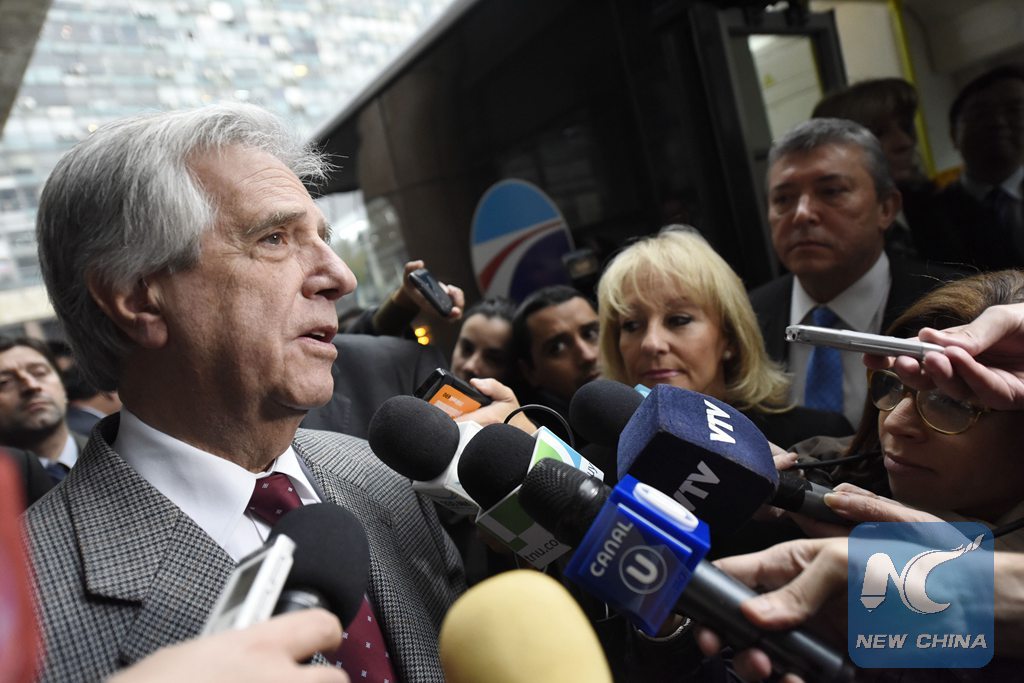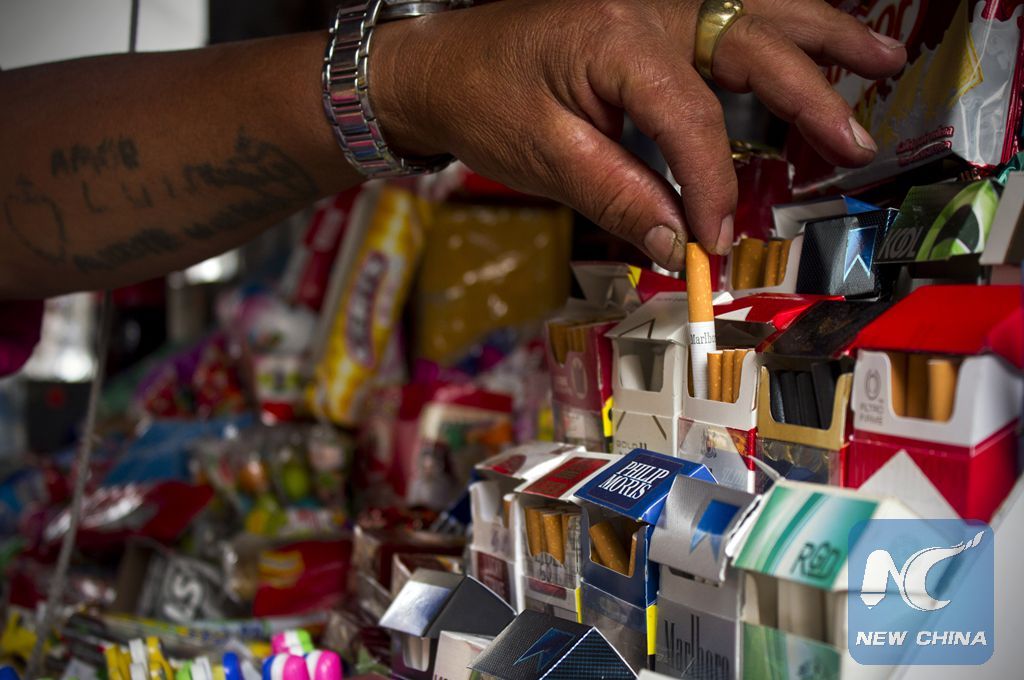
Uruguay's President Tabare Vazquez (L) talks to media representatives in the launching ceremony of the first electric bus imported from China, in Montevideo, capital of Uruguay, on May 5, 2016. (Xinhua/Nicolas Celaya)
MONTEVIDEO, July 9 (Xinhua) -- Uruguay was jubilant on Saturday after the news that the country had won a case brought against it by Philip Morris International (PMI) after the tobacco company sued the country over its anti-tobacco laws.
After Friday's announcement about the victory, Uruguayan newspaper El Observador called it "a global precedent" and a "very important moment" for the country.
El Pais, a leading daily, also called it a triumph for President Tabare Vazquez, who pioneered the country's anti-tobacco laws in 2006.
PMI had argued that Uruguay's requirement that graphic warnings take up 80 percent of the surface of cigarette packaging was in violation of intellectual property rights. Instead, it said that each pack should only have a single warning.
However, The World Bank's International Centre for Settlement of Investment Disputes (ICSID) ruled on Friday that Uruguay's laws were keeping with international standards and dismissed the case. Furthermore, it ordered that PMI pay Uruguay 7 million U.S. dollars in compensation for legal costs.
Uruguayan President Tabare Vazquez made a televised speech to announce the news, saying that "the attempts of the tobacco companies have been roundly rejected. It is not acceptable to prioritize commercial considerations over the fundamental right to health and life."
During Vazquez's first term as president, in 2006, Uruguay became the first Latin American country to ban smoking in closed public spaces. In 2008, the country also demanded that cigarette packs must bear health warnings covering 80 percent of their surface.
This led PMI, which has its operational headquarters in Switzerland, to launch a lawsuit in 2010, saying that these lawsuits devalued their brands and broke the bilateral investment treaty between Uruguay and Switzerland.

A person holds a cigarette on the World No Tobacco Day, in Quito, capital of Ecuador, on May 31, 2016. (Xinhua/Santiago Armas)
After ICSID announced its decision, the tobacco company said it would comply with the ruling. Marc Firestone, PMI's general counsel, issued a statement saying that "we have never questioned Uruguay's authority to protect public health."
The World Health Organization (WHO) also congratulated Uruguay on the win, stating that this was "a recognition of Uruguay's continuous efforts to protect its population against tobacco consumption."
Michael Bloomberg, the former mayor of New York, whose foundation provided legal and financial support on the case, added that this decision "shows countries everywhere that they can stand up to tobacco companies and win. No country should ever be intimidated by the threat of a tobacco company lawsuit, and this case will help embolden more nations to take actions that will save lives."
The victory was also seen as significant since PMI, whose brands include Marlboro, Benson & Hedes, and Chesterfield, accounts for 15.6 percent of cigarettes sales worldwide outside the U.S. It had annual revenues of 80.1 billion U.S. dollars in 2014, far larger than Uruguay's GDP of 57.47 billion U.S. dollars.
Data from the Uruguayan Health Ministry data showed that the proportion of smokers in Uruguay fell from 35 percent in 2005 to 22 percent in 2014.

